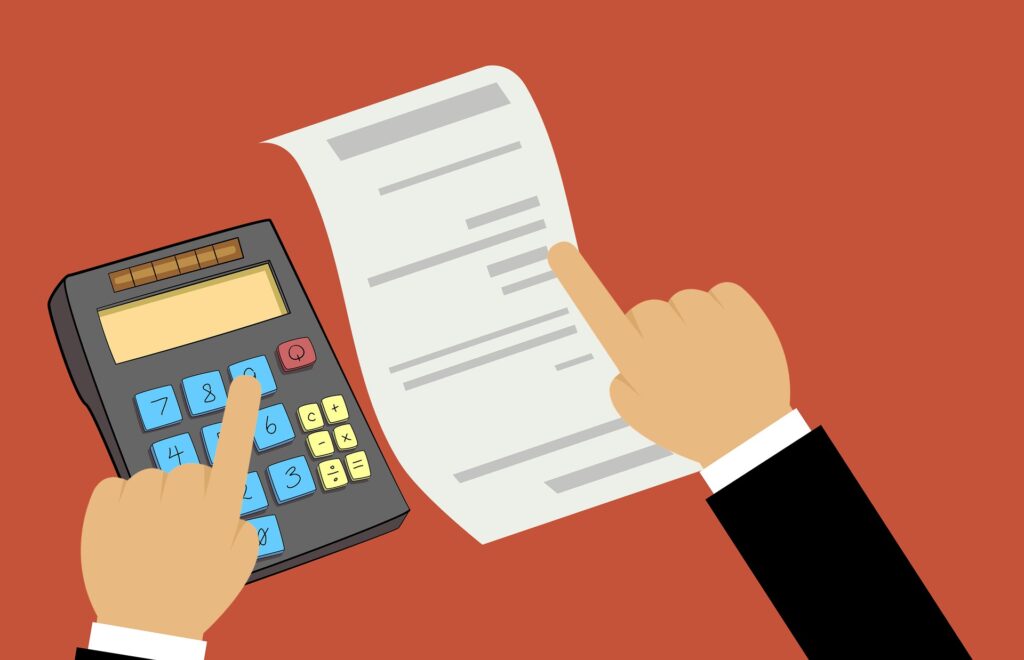by Sandra Knight, Contributing Editor

Are you looking for expenses to reduce your taxes as an author?
Do you know which costs you can deduct to lower your taxes as a professional author or freelancer?
If you don’t make a profit, can you still submit your losses?
Taxes can be a hassle until you realize the thousands of dollars you save by submitting your expenses.
Any actual business expense you deduct lowers your taxable income.
So, what is an actual business expense?
In a nutshell, it must be ordinary and necessary.
Ordinary costs are part of your industry used to run your business.
Necessary expenses are useful and applicable to your business.
Business expenses should be tracked all year and will decrease your taxes when you submit them on the IRS Schedule C tax form.
You will need to review the Schedule C form or consult a tax professional to review what is deductible and whether you can deduct all or a percentage of each expenditure.
Here are some of the tax deductible items for authors:
Self-publishing Expenses
These can be substantial when starting out but if you are organized with your record keeping you can benefit by submitting your business costs to help lower your taxes.
Some of these expenses include, but are not limited to:
o Printing
o Cover design services
o ISBNs
o Marketing
o Accountant services
o Lawyer fees
Office (Home or Another Location)
Whether your office is a room in your home, or you lease a place somewhere else, there are two ways to claim the deduction for your office:
o Simple (easier and quicker) – You take the square footage of your office (up to 300 sq ft) and multiply by the standard rate of $5 OR
o Actual or regular expenses (related to home office) – You claim every expense and are more accurate but take more time.
• Direct costs are all supplies and repairs to where your office is located.
• Indirect costs can include a portion of your mortgage, insurance premiums and utilities. You divide the total cost by the percentage of your home used for your business.
Office supplies
You can write off almost any kind of office supply as long as you use it in your business. Some of these include, but are not limited to, the following:
o Printer, printer paper, ink cartridges.
o Desktop or laptop computer and software applications (i.e., Microsoft Word/Excel, email accounts, Canva, website hosting, domain names, WordPress themes, Aweber, Mailchimp, etc.)
o Fax machine and copier.
o Pens, paper, postage, notepads, etc.
o Furniture (i.e., desk, chairs, chair mat, etc.).
Professional Development Costs
These costs are based on the type of business. If you are an author, you can claim expenses such as conferences, continuing education and publishing events.
o Expenses for continuing education learning, coaching (i.e., Monday Morning Shove, Fearless Freelance Writer, etc.) and your mentor.
o Research (i.e., travel to locations in your book, interviews, cost of books, hiring a researcher, and even streaming services (i.e., Netflix, Hulu, Amazon Prime, etc.)) can serve as research to write fiction or to learn about dialog, scenes and editing.
o Outsourcing – If you hire people to help with your writing business, you may deduct the cost as a business expense. For example, you could deduct the cost of hiring an editor to edit your work or a proofreader to proofread it.
o Marketing and promotion expenses can include local ads, business cards, branded giveaways, and digital advertising (i.e., Facebook, Google, LinkedIn ads, website design and maintenance, etc.).
o Subscriptions to magazines (Coaching Monthly Magazine), newspapers, journals, newsletters, etc.
Other Expenses You Can Deduct
• Self-employed health insurance.
• Expenses while writing a book (unpublished).
• Auto expenses.
• Business meeting and travel expenses.
Items You Cannot Deduct as Business Expenses
• Personal hygiene.
• Legal violation fees (parking ticket or court fees).
• Illegal expenses.
• Money paid to lobbyists.
• Personal expenses.
• Costs that should be capitalized.
How far back can you deduct expenses?
We all know that becoming an author or professional writer doesn’t happen overnight and can take several years before getting earnings on a regular basis from books, speaking engagements, and freelance opportunities.
So, the IRS will only allow you to claim losses on your business for three out of five tax years.
If you don’t show that your business is starting to make a profit, then the IRS can prohibit you from claiming your business losses on your taxes.
In addition, you must prove to the IRS you are not a hobbyist but a professional author.
If you don’t already know for sure, it’s important to be aware of how the IRS makes the distinction between whether you’re a hobbyist writer or professional author.
You are presumed to be a professional if your writing makes a profit in at least three of the last five tax years, including the current year.
What makes you a writer versus it being a hobby?
A business plan that shows you intend to turn a profit and ensures the IRS you know how to report the income from your business correctly as well as other factors.
In addition, if you don’t meet the IRS requirements of turning a profit three out of five years, you can show how you have made a reasonable attempt.
Some of the ways you can prove this effort include the following:
• Spend Substantial amount of time writing or at least creating work on a regular basis either full-time or part-time.
• Marketing your work and retaining all your marketing submissions and rejection letters.
• Keep precise business records.
There are many tax deductions you can use to lower your taxes as an author as long as they are used for your business.
Keeping all business records, including your receipts organized, will make it easier at tax time and will come in handy if you are audited.
If you are just beginning your freelance writing career or have sold a book as an author, taking advantage of every benefit will help your bottom line.
The more business expenses you can deduct, the lower your taxes will be.
Here are a few links you might want to check out no matter where you are in your professional writing business to discover tax deductible items for authors:
Self-employed tax deductions – Top 14 write-offs to benefit from
40 Tax Write-Offs for Freelance Writers (2023)
Tax Tips for Freelance Writers and Self-Published Authors
19 Top Tax Deductions for Writers
Disclaimer: I am not a lawyer or a tax accountant, so please due your due diligence, and if you have any questions, seek out professional help.
About Sandra Knight
 Sandra Knight and her husband live in the great state of Texas.
Sandra Knight and her husband live in the great state of Texas.
Sandra is a professional writer who creates content for businesses, including in-depth guides, educational reviews and engaging blog posts.
Her career focus is writing content in the personal finance space, and she is passionate about planning for the future and helping others.
Learn more about her and her writing services at linkedin.com.
Don’t forget to join our mailing list.
Just fill in your name and email address, below:






